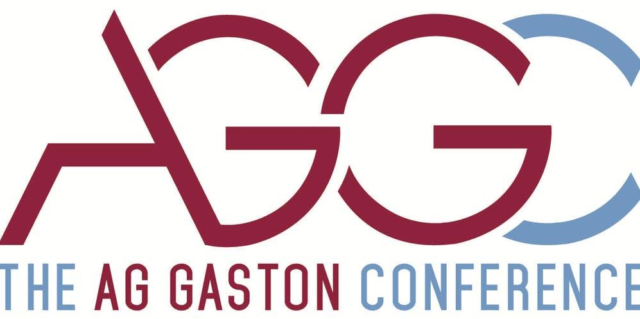By Robert Dickerson Jr.
Special to The Times
As we prepare for the 15th Annual A.G. Gaston Conference my thoughts, as always, are on the further development of businesses owned by black people in Birmingham and the state of Alabama. One of the stated purposes of the conference has been to highlight the plight of these businesses, encourage others to pay attention, support and understand their importance then to work with various stakeholders to make sure that these enterprises are seen and supported.
We invite you the citizens of Birmingham to join this conversation. Whether you are a community leader, business owner, corporate executive, activist or advocate our conference has something for you. We will feature CNN Commentator Ms. Angela Rye who formally headed the Congressional Black Caucus and Economist and Social Commentator Dr. Boyce Watkins. The dates of the conference are February 12 and 13, 2019 at the Birmingham Jefferson Convention Complex. To register and for more information please visit the website at www.aggastonconference.biz.
Gaston, of course, is a role model for black businesses anywhere. In addition to surrounding himself with smart people, paying competitive salaries, branding himself and his company, Gaston inspired others and the A.G. Gaston Conference uses him as an example of what other companies owned by black people can do.
Some people might ask why is growing black enterprise so important? My answer to that is to refer you some of our Gaston conference “Green Papers” which can be found on our website www.aggastonconference.biz that were written by Vickii Howell, The 2005 State of Black Business in Birmingham Full Report, Dr. Vickie Cox Edmondson, Getting Birmingham’s Black Entrepreneurs Poised to Play a More Prominent Role in How Business is Done, and Dr. Stephen H. Craft, Entrepreneurial Opportunity & Human Dignity: The State of Black Enterprise in Birmingham. All these scholarly works point out the importance of black business, not just to their owners and employees, but the cities, states, communities and to society as a whole.
The year 2042 is coming faster than we think. In fact, the year that black and brown people will outnumber white people in America is likely to occur sooner than that according to most experts. That makes me think about a book that I have on my desk called Minority Business Success written by Leonard Greenhalgh and James Lowry. This book states there is a limited number of black and brown businesses in existence largely due to historical discrimination. The case for improving, elevating and helping these firms grow is compelling. Although the odds have been stacked against them according to the authors. “Their success in creating wealth will determine the fortunes of the nation and everyone within it.”
What’s broken in Birmingham is that we have a $100 billion economy and black companies produce less than $1 billion, in revenue – that’s less than 1 percent of the total. Just a few weeks ago the mayor of Nashville committed to developing an aggressive set of actions to “level the playing field” for companies owned by minorities or women that are in pursuit of government contracts in his city. Nashville just did a disparity study, something we did in Birmingham over a decade ago; however, it doesn’t take a study to identify the fact that we have problems in this area. Here is one idea to move us forward. Imagine that black and brown business revenue increases fivefold. Keep in mind, parody would have it at about 30 percent but we will, for the sake of argument, leave it at 5 percent. That type of increase in revenue being generated by black and brown companies, in the Birmingham market would have many obvious positive impacts. This would obviously help to grow wealth and help to increase population due to new job growth and opportunity but would also increase consumption of durable goods. Sales and value of real estate would increase as well. The untold and somewhat immeasurable outcomes like greater self-esteem for all people in our communities, better schools, lower crime rates, and an improved image for the Birmingham area that we’ve never experienced before will come about as a result of this increase in business receipts.
So, why haven’t we gotten there yet? Political power versus economic gain?… There is significant African American presence in the political arena, yet we still haven’t gotten any closer to closing the white and black business revenue and wealth gaps. This year, the A.G. Gaston Conference has adopted as its theme: “Bringing to the forefront the discussion of African American History, Economics, Politics and Quality of Life.” Understanding of our history, learning to be financially responsible, focusing on quality of life issues are all essential steps to elevating black business enterprise.
Robert Dickerson Jr. is executive director of the Birmingham Business Resource Center.




